|
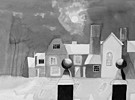 The house was home to a number of people – both living and dead. It was an unusual house. Unexpected. Most who daily hurried past its high garden walls, and the pollarded limes that towered above them, spared no thought for what lay within. Perhaps the house wanted to be forgotten. Certainly it stood on ground that was both holy and unholy. ................. The house was home to a number of people – both living and dead. It was an unusual house. Unexpected. Most who daily hurried past its high garden walls, and the pollarded limes that towered above them, spared no thought for what lay within. Perhaps the house wanted to be forgotten. Certainly it stood on ground that was both holy and unholy. .................
Suddenly there were lights in the driveway. The main gates that had been chained and padlocked swung open. Without a sound, a procession of monks came through the gates and moved along the drive towards the front door. As I watched, the walls of the house melted away and in their place slowly arose the shadowy outlines of a great mediaeval church. First the West End with carvings round the doorway, then the Nave and the Transepts and finally a lantern Tower grew out of the crossing. A bell began to toll as the monks led by a server carrying a cross went over the threshold into the church.
.................
back to top of page
By this time we had reached the top of the hill by Hardley Church. From here Marjorie could see right across the Hardley and the Chedgrave marshes. She could see the sails of yachts below the river banks and the place where the river Chet ran into the Yare. She looks down the hill to Hardley Hall, a grey stone Tudor farmhouse that is said to be haunted. William says that’s as may be but no tenant stays very long. She shivers. It looks very isolated there, right on the edge of the marsh and no other houses near by.
She was beginning to feel tired so she sat down in a sheltered corner of the graveyard. Here out of the wind the spring sun was warm on her face. A blackbird was singing. She bent to smell a clump of early primroses. Suddenly we were shot through by an ecstatic sense of happiness. We were wildly in love with life, the world, my father and each other.
.................
back to top of page
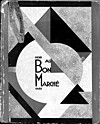 Out of the corner of her eye Marjorie saw a group of Arab youths picking up stones. Their furtive glances looked menacing. Suddenly a rock hit the ground beside the guide. Out of the corner of her eye Marjorie saw a group of Arab youths picking up stones. Their furtive glances looked menacing. Suddenly a rock hit the ground beside the guide.
“Quick! Quick! back to the hotel.”
Abdul grabbed Marjorie’s arm and began to hurry her along. William took her other arm.
“Duck! Margie…”
Another stone hit the road beside William.
“Faster! Make haste…” shrieked Abdul.
.................
back to top of page
At home the lads were into feats of daring, like riding their motor bikes round the coping of a nearby railway bridge. They made their own aeroplane and in 1910 it was exhibited in the aero show at Olympia. They flew thirty yards before crashing it.
In 1912, only four years after Bleriot crossed the channel in a monoplane, Edward, aged twenty-six, training to be an engineer, attempted the first non-stop London to Edinburgh flight in a Martin-Handasyde monoplane. Caught in a gale blowing off the Cleveland Hills in North Yorkshire, he crashed near Marske-by-the-sea and died instantly with a broken neck. The flight and the subsequent inquest remained national news for over a month. His mother collected all the press-cuttings into a bound book.
.................
back to top of page
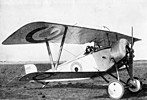 “Have just been told I am to receive Croix de Guerre on Thursday. Hope to goodness the general does not treat me to any kissing stunts as he did the last people who got it.” “Have just been told I am to receive Croix de Guerre on Thursday. Hope to goodness the general does not treat me to any kissing stunts as he did the last people who got it.”
.................
Here among the roots of the sycamores I had hidden a red tin. In the tin were four half crowns, a present from my godfather, Uncle Henry, on his last visit. No one knew of this place, not even Mary. It was my thinking place.
.................
back to top of page
My best friend Polly said:
“I have to go down the West Wing to have a bath. Will you come with me?”
It was the start of my second year at a convent boarding school. My father managed the nuns’ small estate.
We walked quietly along the seniors’ corridor. The old floor creaked.
“Why aren’t the lights on?”
We reached the swing doors. The two bathrooms and six lavatories lay beyond, in complete darkness.
Suddenly, I was grabbed by rough, unseen hands and blindfolded. I was held by my arms and legs and dragged towards the bathrooms.
I screamed and a hand was clamped over my mouth. Many hands hoisted me up and then I was lowered into a bath. I heard whispers. A door closed softly. Complete silence. I was very cold and my heart thumped.
.................
back to top of page
 We were supplied with sheets of blotting paper in assorted colours. I tore off a corner and chewed it into a mushy lump. I placed this on the end of my ruler and flicked it upwards as the teacher turned away to write on the blackboard. With luck the lump stuck on the ceiling to be joined by others in assorted colours. It was fun. Others joined in. Soon we had made a mosaic. We were supplied with sheets of blotting paper in assorted colours. I tore off a corner and chewed it into a mushy lump. I placed this on the end of my ruler and flicked it upwards as the teacher turned away to write on the blackboard. With luck the lump stuck on the ceiling to be joined by others in assorted colours. It was fun. Others joined in. Soon we had made a mosaic.
One day, out of the blue, I was called to the head’s office. She was very small, icy, terrifyingly courteous and curiously low voiced. This morning she was seething as well. She advanced from behind her desk. I retreated back to the wall next to her crucifix. Still she came on, until her face was a few inches from mine. Her stiff wimple scratched my cheek. Her breath and black clothes smelt stale. Her voice was barely controlled.
.................
back to top of page
My mother’s mother, Ismay Ursula Annunciata – (born on the feast of the Annunciation, March 25th 1872) – inherited Acton Burnell Park on the death of her father, Sir Walter Smythe, the 8th baronet, in 1919. Thus ended the peripatetic wanderings of Ismay and Archibald Bruce. Since marriage in 1894 they had lived in many places, from West Virginia to Ireland, the West Country and Aldeburgh, Suffolk, during the war. It must have been a great relief to settle at last into a fine Palladian mansion with a modest estate in Shropshire. The baronetcy, founded in 1660, virtually ended then, as Ismay’s older brother, Edward, the 9th baronet, was in the care of the Master of Lunacy. The story went that he had been hit on the head during a cricket match as a young man. This seems to have robbed him of his reason and his speech.
.................
The diary shows that travel in England in 1941 was possible provided you had enough petrol coupons or income for train fares. There were also opportunities to eat out in cafes and hotels. The cinema and theatre were great sources of relaxation.
On March 28th she records various bombs in the distance and in a few days they go to see huge craters on Langley marsh and in a local field. The Easter holidays start and she buys a pony trap and harness. We have two ponies who take turns in pulling the trap. We made an expedition to see the enormous crater made by a dropped land mine near a wooded pool called Hellesmere Hole. One day:
“W rings up to say not to go to Norwich as Colman’s (mustard factory) badly burnt last night and an unexploded bomb near the Carrow Road.”
My father organised the Royal Observer Corps Lookout Post in a wooden hut near a pill box, on a slight rise, outside Loddon above the Beccles road. He would get information about aircraft, bombs and casualties in the area.
.................
back to top of page
There were six of us novices. All in our twenties and from very different backgrounds. Two had been factory workers in the Midlands, two were Oxbridge graduates, and one girl had never worked. We slept in wooden huts dotted round the grounds. At six am the novice mistress banged on your door, “Benedicite”. You answered “Deo Gratias”, tumbled out of the wooden bunk, washed perfunctorily in freezing water, dressed and went to the chapel for mental prayer and Mass. Sometimes the full moon shone through the sweetcorn outside my hut.
The first six months were spent in hard manual labour and in learning how to meditate. I scrubbed mud laden artichokes, dug up vegetables from half-frozen ground, polished floors, and learnt to cook at speed for a community of twenty. In my nervousness as assistant sacristan, I dropped the sanctuary lamp so that its oil spilt all down a pristine wall. In the kitchen I broke more china than anyone before. It was all incredibly exhausting but also satisfying. For parts of some days I knew an inner peace that surpassed all understanding. My problems were physical. Onions and other root vegetables and rough wholemeal bread gave me indigestion.
.................
back to top of page
He couldn’t read anymore, but this fetching of the newspaper and getting his spectacles was part of the morning ritual.
Always a small, trim man, Albert’s wartime experience as a prisoner of the Japanese, seemed to have shrunk him. But his small stature was more than compensated for by his depth of spirit. This was a man, who, his wife heard from former RAF colleagues, kept them alive in appalling conditions. These men were made to work hacking coral to build the infamous Burmese railroad. They had inadequate food and fell ill with fevers, including beri-beri. Men wanted to die but Albert would try to keep hope alive, He would tell them about Norfolk and the life he knew there at Langley Hall Farm.
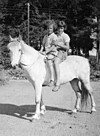 “He’d tell us how Miss Mary would make jumps for the ponies. Then when Miss Ann had finished her lessons they’d be off on the ponies. Mary on the little Greymoth and Ann on the bigger, black one, Gypsy. Off they’d gallop through the woods, whooping and hollering like cowboys…Another time he told us how he went to work for the Captain when he was twelve. Captain Petre said he’d teach Alfie how to drive. He sat him in the driver’s seat, showed him the gears, and told him to drive them up the Back Lane. Captain cursed every time he got a gear wrong. He was that frightened he learnt to drive in a day!” “He’d tell us how Miss Mary would make jumps for the ponies. Then when Miss Ann had finished her lessons they’d be off on the ponies. Mary on the little Greymoth and Ann on the bigger, black one, Gypsy. Off they’d gallop through the woods, whooping and hollering like cowboys…Another time he told us how he went to work for the Captain when he was twelve. Captain Petre said he’d teach Alfie how to drive. He sat him in the driver’s seat, showed him the gears, and told him to drive them up the Back Lane. Captain cursed every time he got a gear wrong. He was that frightened he learnt to drive in a day!”
.................
back to top of page
She lay on her back looking up at the ash trees that were still bare of leaves. At first the sun shone above his head, but as the day wore on, it shone over his left shoulder. That was how she would always remember the spring and summer – his head illumined from behind by the dazzling pale gold sun. He was a god from the Mediterranean.
She had been afraid to give herself to him. Ashamed of her body. He did not hurry her. She explained her feelings, her diffidence. He said very little. His hand held hers and as she talked the sun shone through patterned branches. A cuckoo encircled the wood with its persistent echolalic call. First close, then far away, making a ring of magic that shielded the wood from time. A robin flew close to observe them, and sang to claim his patch of the woods. Pigeons sustained a reassuring lullaby. Gradually her fears subsided. Some way off, between the trees, a herd of deer slipped by, the sun catching their antlers as they moved, silently, from light to shadow.
She turned to him. His response was tender and urgent. From then on she was his, whatever came.
.................
back to top of page
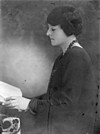 She saw an advertisement for a house in Priory Road. She did not know the street but as she read, and re-read the advert, it all had a curiously familiar feel to it. She went to see it. She was surprised to find the street in an historical area off the Newmarket Road. She had not known of its existence… The terraced house was ordinary enough but as its owner let her out into a wilderness of back garden she was overcome with emotion. She knew that this was the garden she had always longed for. It was a secret garden; large for the size of the house and filled with overgrown rose bushes, lilac, flowers in profusion and a huge central pear tree. She saw an advertisement for a house in Priory Road. She did not know the street but as she read, and re-read the advert, it all had a curiously familiar feel to it. She went to see it. She was surprised to find the street in an historical area off the Newmarket Road. She had not known of its existence… The terraced house was ordinary enough but as its owner let her out into a wilderness of back garden she was overcome with emotion. She knew that this was the garden she had always longed for. It was a secret garden; large for the size of the house and filled with overgrown rose bushes, lilac, flowers in profusion and a huge central pear tree.
back to top of page
|